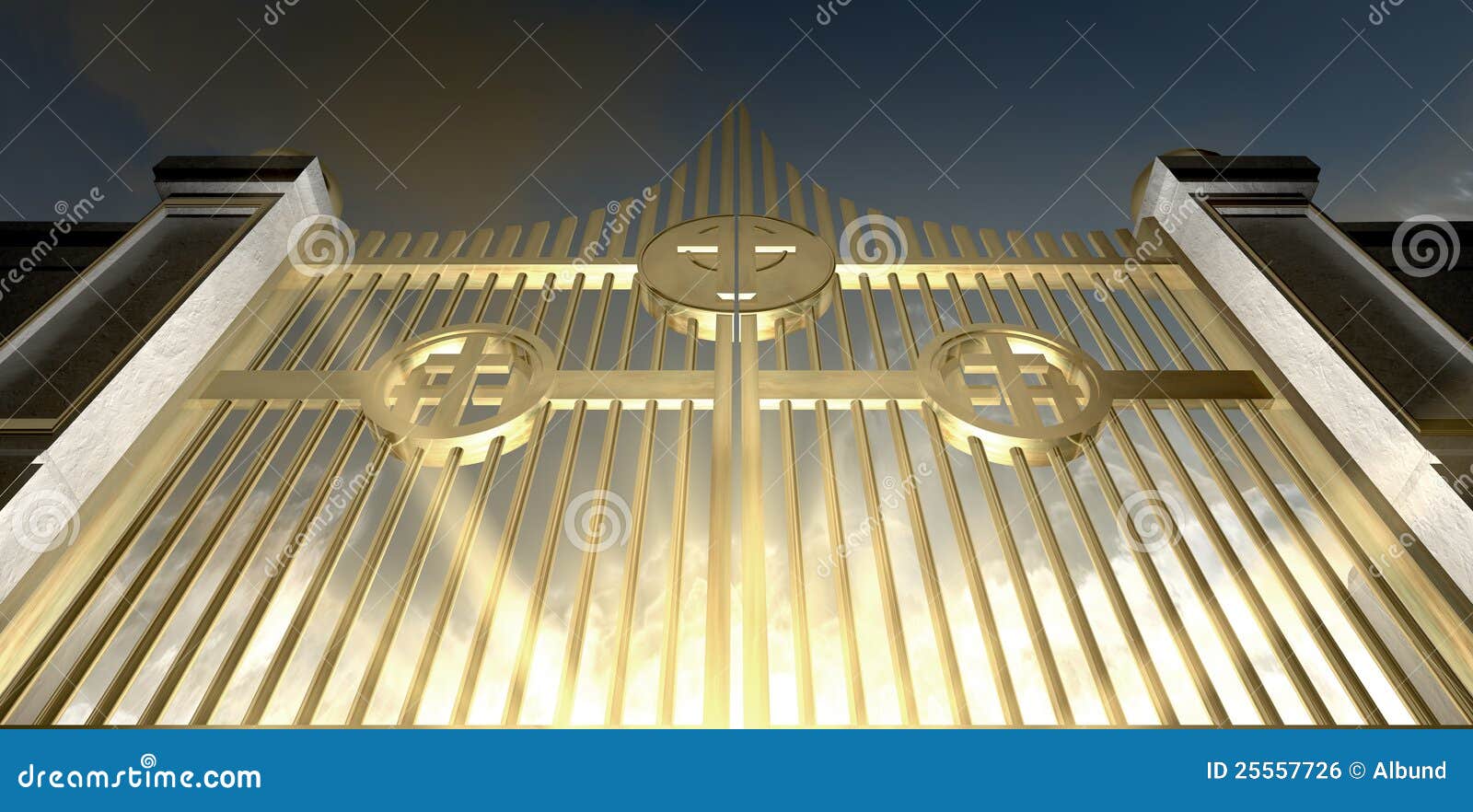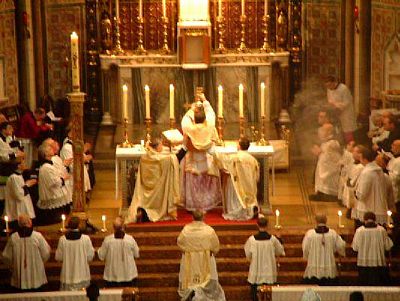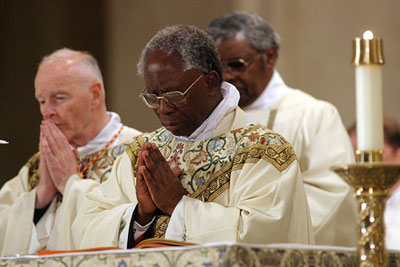Catholic doctrine and tradition can be very confusing to Protestants. (And most of the time they are not aware of how confused they are.) I have sat through hundreds of hours of debate, even some in which I was involuntarily assigned the position of Catholic apologist, where I became frustrated because I knew that the Protestants were not understanding us. That is not their fault. It's like attempting to explain geometry using only algebra concepts or playing tennis using rugby rules.
Within a wrong framework, Protestants often try to judge Catholic teachings. Yet it is impossible to understand Catholicism through Protestant lenses. It simply cannot be done without distortion. Our verbiage doesn't translate, our worldview is different and while there is much we disagree on, there is more areas of agreement and our position is simply misunderstood.
One of the most important areas of misunderstanding is in the sacrifice of the mass. I hear many Protestants wonder why we don't liven things up in church services, why do Catholics all have to say "amen" together?
I have witnessed Protestant visitors in mass deliberately get chummy with their neighbors, cut up and comment aloud in order to witness to us fuddy-duddies about what heart-felt worship is. Can't we be spontaneous and real? What about all that horrible ancient music? It's too dark and depressing, why not have happy music? Why so solemn? Nobody seems friendly--lighten up already! Believe it or not, that seems like an easy question for a Protestant. But the answer is deep and rich and unable to fit into meme, tweets or soundbites.
Well then, let's talk... because these people are not understanding what is going on. While the subject of the mass is massive, here are four things Protestants should understand that Catholic Mass is not:
1. Mass isn't about socializing.
Catholics are more solemn and quiet when they entered the main seating area of the church. Protestants often
misunderstand this as unfriendliness.
Catholics mass is not unfriendly, we simply have a different conception of what church is.
While many United States parishes now have greeters posted in the narthex, the area that leads into what the Protestants call the sanctuary (and we call the nave) is supposed to be gate in which we enter heaven.
In the narthex, we are attempting to put our souls in a place of joyful reverence. We have come to meet the King to repent our sins, humbly beg for mercy and grace, receive not only His forgiveness and blessings, but to renew our intimate convenant as His Bride.
Once inside the nave, we are not there to kiss, hug, whisper to or greet our neighbor. We are supposed to quietly pray and prepare our hearts for the sacrifice of the mass. Nor are we supposed to talk at all until we are back outside in the narthex. (Boy, have we become lax with that rule.)
While it is theologically the time that the entire Body of Christ is to worship in communion with each other, physically and spiritually we are to be silent in order to focus on worshipping the Creator.
For Catholics who understand what is happening, mass is the holiest moments we shall ever have in our lifetimes on earth.
The Crucifixion is re-presented and we partake of the Wedding Banquet. We receive the food of heaven, the gift of the Eucharist that we may be one with Him, even as the Father and He are one.
We join with Christ and take in us His Body and Blood, His Divine Nature. We participate in His Sacrifice, the breaking of His Body, that we may leave and go out sacrificing for others, breaking our prideful spirit, that we may share His life to others. It is the only time in our lives that we can say we had an awesome time. For adorning God alone is awesome.
2. Mass isn't about our preferences.
The liturgy, the vestments, the decorations, the music, the bells and smells are not something a bunch of men at the Vatican sat around debating and voting for or against. We are not at mass to satisfy the pope or the magisterium's preferences nor our personal worship tastes. We are not there to experience diversity, share our opinions nor thoughts. We are there to learn to honor God and love what He loves.
God made His preferences of how we are to worship Him known to the Jews and Christians dip from that well spring of knowledge. Our worship traditions were set in place by the Apostles and their successors in the first few centuries based upon what Christ told them as well as how God instructed the Hebrews. Catholic worship traditionally is supposed to resemble the Temple worship (only the sacrificial lamb is now Christ).
But that's okay if you don't like the solemn ceremony, the music, the liturgy.
- We don't have to like the traditional music of Gregorian chants--God does.
- We don't have to like the procession or the funny clothes--God does.
- We don't have to like the smells or bells or where the lecturn sits--God does.
The worship of God is not to please us but to please Him. We can surely put away our opinions and preferences for an hour a week.
Sadly for us, our Eastern Christian brothers have been more faithful in keeping out modern practices than the West. Those who attend Latin mass with Gregorian chants will get a better view of our history and what Catholic worship looked like in the early church.
So often in the West, Catholics have attempted to copy Protestant worship in order to appeal to the modern tastes, which seems to never turn out well for us. Like when an opera singer attempts to sing hip-hop. It comes across awkward and indeed childish. We should stick with what we have learned to do well over the centuries.
3. Mass isn't about entertainment.
We are there under command by God to worship Him. Frankly, God doesn't care that we are bored. We are supposed to ask Him for the grace to bring us into the understanding of what is going on.There would never be a moment of boredom if we were to fully realize the powerful miracle of what was going on at mass: the supernatural shattering of time and space! In a sense we are all bi-locating and rewinding time for two-thousand years to
stand at the feet of the one sacrifice at the Cross. We are there at the altar experiencing the mystery of the unity of the church militant on earth, the church suffering in purgatory and the church triumphant in heaven as well as the angels and archangels--all there among us, worshipping.
We are consuming the very Body, Blood, Soul and Divinity of Christ! Think of how that is sanctifying our spirits, our minds, our hearts, and our DNA! Christ in us! By imputation, by
infusing, by imparting, instilling, implanting, permeating, steeping and suffusing us with His righteousness--animating and enlivening our souls that have been beaten, broken, wounded, crushed and crippled in sin.
As we grow in Christ and discover the deep mysteries of the Cross, our hearts and spirits will be drawn more and more to the mass. As we learn to walk in holiness by taking advantage of the graces of the sacraments, and reading about Catholic history and doctrines, our excitement will soar! (Need help with this watch anything on youtube done by Scott Hahn!)
4. Mass isn't about proselytizing.
At least in the way Protestants think about it. We don't offer cards to guests to fill out making a pledge to Christ. We don't try and convince people with music and lengthy, emotional altar calls to give their hearts to Jesus during mass.
Though historically, many of those who visit the sacrifice of the mass, experience His glory in the crucifixes, the reverence of the church, the Bible stories told in the stained glass windows, are drawn to His Holy gospel. Christ's presence is there and the Holy Spirit calls.
Catholics most effective way of spreading the gospel is through their hospital and charity work, their universities and schools. It is through our
acts of charity and our daily sacrifices for others that best show the gospel of Christ. When one comes into a Catholic Church to pray or experience the sacrifice of the mass, it is usually the culmination of the seeds the church has sown in acts of love outside of mass.
acts of charity and our daily sacrifices for others that best show the gospel of Christ. When one comes into a Catholic Church to pray or experience the sacrifice of the mass, it is usually the culmination of the seeds the church has sown in acts of love outside of mass.
And indeed we are told in scripture that our coming together to celebrate the Eucharist is in its very act spreading the gospel.
When you eat the bread and drink the cup, you are announcing the Lord's death until he comes again. I Cor. 11: 26.
 You are invited and most welcome to come to a Catholic mass. Just google a Catholic Church in your neighborhood. Just try to understand why we are different from Protestant Church. In mass, you should experience the Evangel. It will not be like a Protestant church service, as well it shouldn't. And that is not a criticism of the Protestant services. I worshipped with them for the majority of my life.
You are invited and most welcome to come to a Catholic mass. Just google a Catholic Church in your neighborhood. Just try to understand why we are different from Protestant Church. In mass, you should experience the Evangel. It will not be like a Protestant church service, as well it shouldn't. And that is not a criticism of the Protestant services. I worshipped with them for the majority of my life. Just know that mass is different.
Very different.




/199-ClownMass.jpg)





